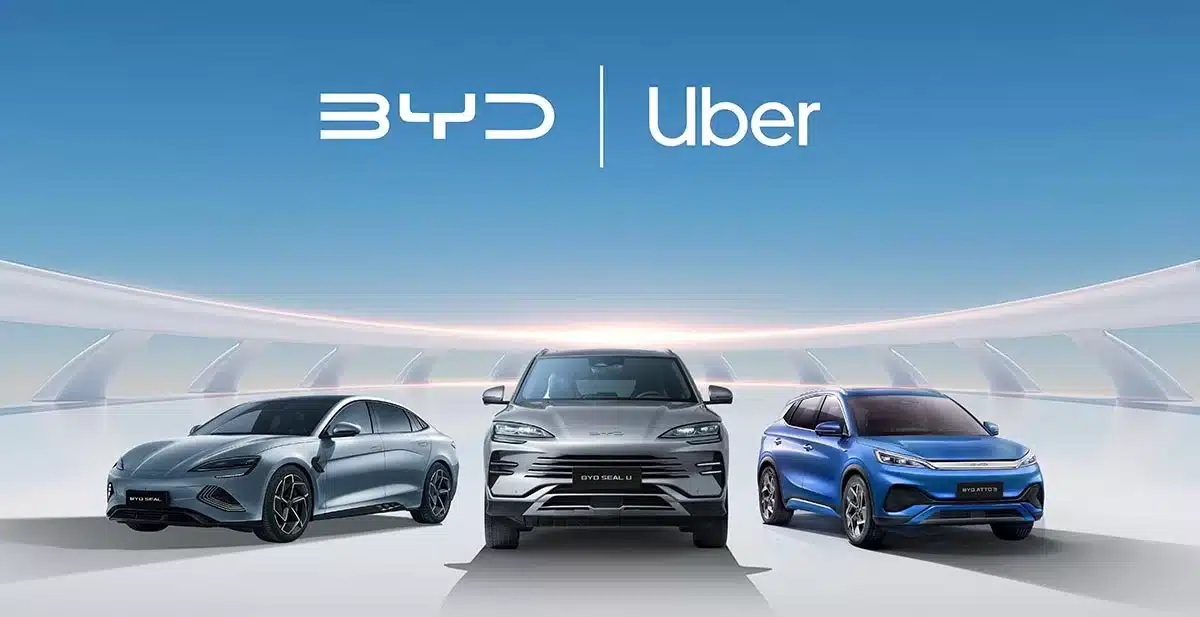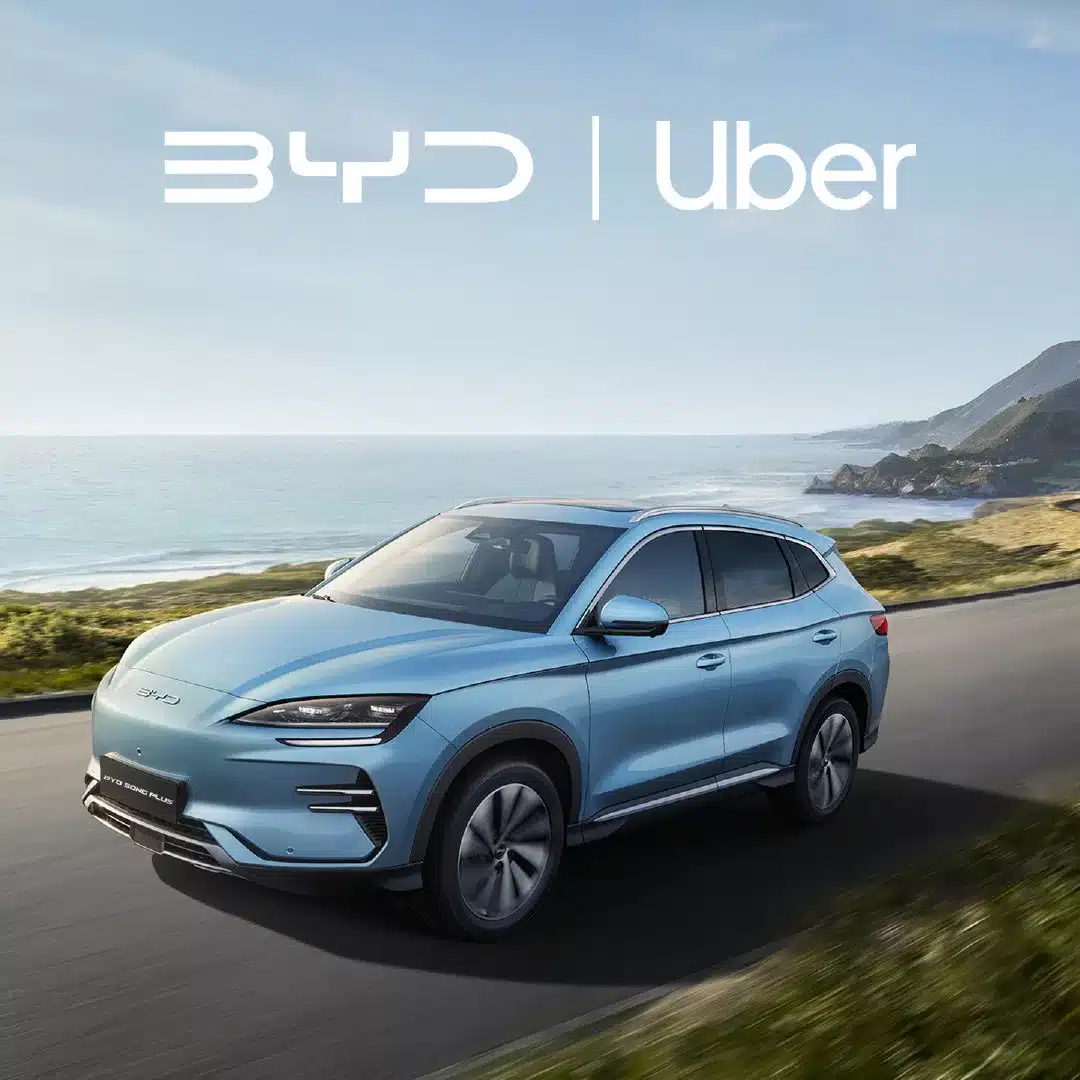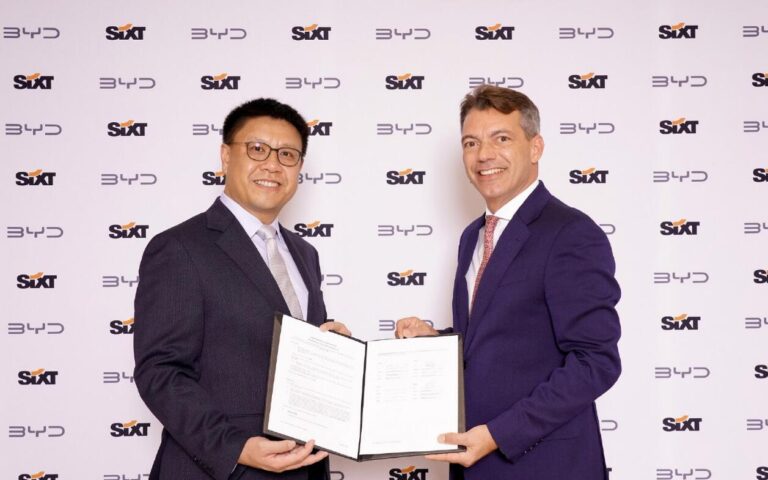The partnership starts with Europe and Latin America and will also expand to markets including the Middle East, Canada, Australia and New Zealand. They will also work together to develop future BYD autonomous vehicles.

BYD (HKG: 1211, OTCMKTS: BYDDY) will supply vehicles for ride-sharing giant Uber Technologies' (NYSE: UBER) platform, marking another major passenger car order for the Chinese new energy vehicle (NEV) maker.
Uber and BYD have entered into a multi-year strategic partnership aimed at bringing 100,000 new BYD electric vehicles (EVs) to Uber's platform across key global markets, according to a statement today.
The partnership, which will begin in Europe and Latin America, is expected to provide drivers with pricing and financing for BYD cars on the Uber platform, Uber's statement said.
The partnership will also expand to markets including the Middle East, Canada, Australia and New Zealand, according to the statement.
Uber has the world's most extensive network of on-demand EVs, while BYD is a global leader in EV production, the ride-sharing giant said.
The two companies aim to reduce the total cost of EV ownership for Uber drivers, accelerate the Uber platform's global rollout of EVs, and enable millions of riders to enjoy greener rides, according to the statement.
They will also collaborate on the development of future BYD autonomous driving vehicles that will be deployed on the Uber platform.

As the world's largest on-demand mobility and delivery platform, Uber is well positioned to massively roll out autonomous vehicle technology to a global audience, the company said.
While Uber drivers are going electric five times faster than private car owners, driver surveys show that the price of EVs and availability of financing remain major barriers to conversion, Uber said.
In addition to being affordable, BYD vehicles have lower maintenance and repair costs and well suited to rideshare due to their wide range of models, superior battery performance and build quality, according to Uber.
To support drivers' use of EVs, the companies' joint efforts may also include discounts on charging, vehicle maintenance or insurance, as well as financing and leasing offers, depending on what works best for drivers in a given market.
“As the largest global agreement of its kind, we’re thrilled about the benefits this partnership will deliver for drivers, riders, and cities,” said Uber CEO Dara Khosrowshahi.
When Uber drivers switch to EVs, they can deliver up to four times the emissions benefits compared to a regular motorist, simply because they are on the road more, Khosrowshahi said.
“This collaboration marks a new era in the electrification of urban mobility, and we look forward to seeing our cutting-edge EVs become a common sight on the streets of cities worldwid,” said Stella Li, executive vice president of BYD and CEO of BYD Americas.
The partnership with Uber is one of the largest agreements BYD has struck in the shared mobility space in the past few years.
On October 4, 2022, BYD announced a partnership with German car rental company SIXT, which committed to purchasing 100,000 EVs from it over the next several years.
The partnership began with SIXT's initial order for thousands of BYD's pure electric vehicles, with first deliveries in the fourth quarter of 2022, according to a statement at the time.
The first BYD pure-electric vehicle SIXT offered its customers was the Atto 3, an SUV based on BYD's latest e-Platform 3.0, known in China as the Yuan Plus.
Uber's statement today didn't mention which BYD models it will adopt first. BYD currently has dozens of available models in China.
BYD has fast become the world's largest NEV maker over the past few years, selling 1,612,983 NEVs in the first half of this year, up 28.46 percent year-on-year, according to data compiled by CnEVPost.
Its passenger NEVs sold 1,607,145 units in the first half of the year, up 28.76 percent. Commercial NEVs sold 5,838 units in the first half of the year, down 21.91 percent.
